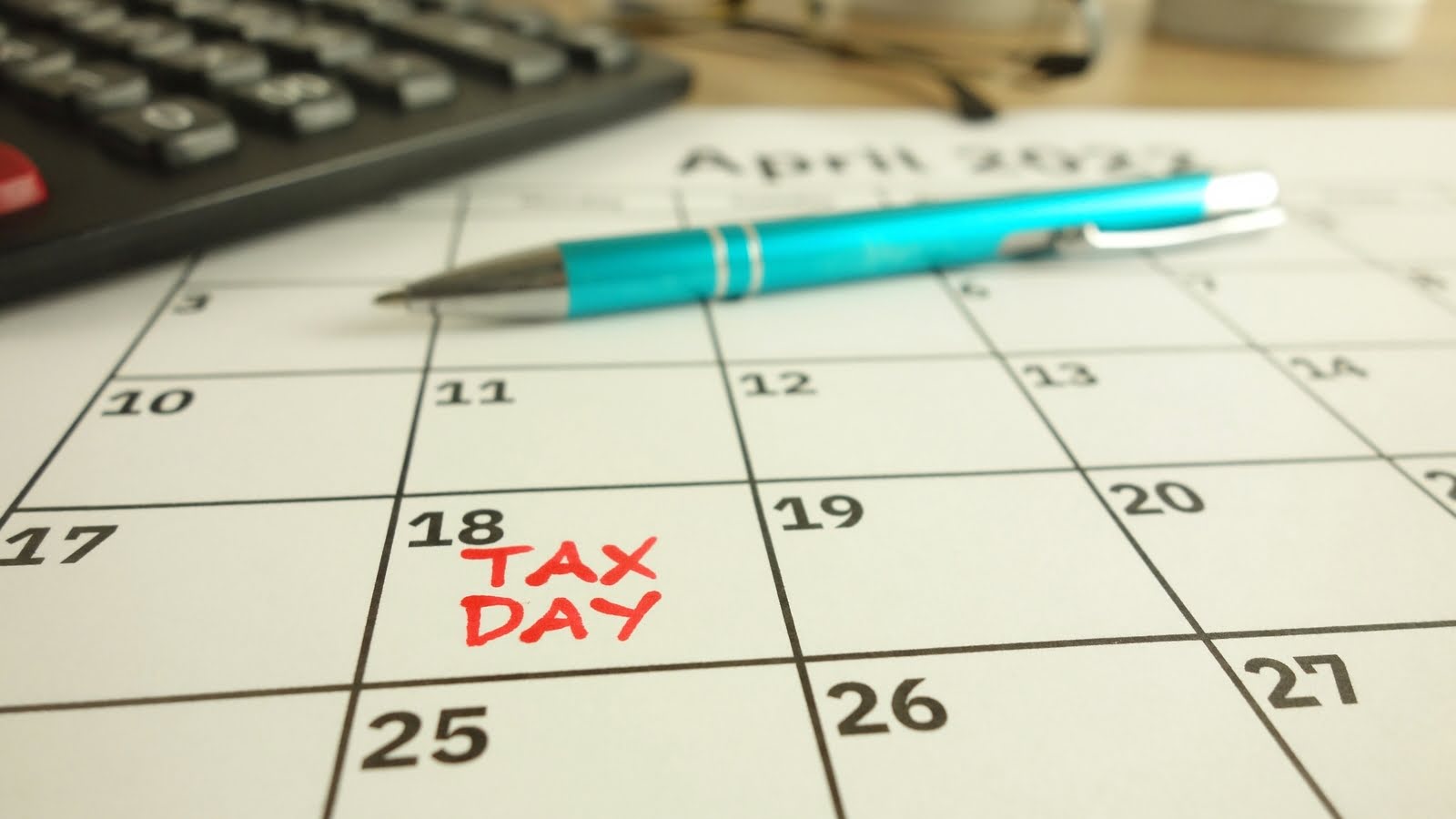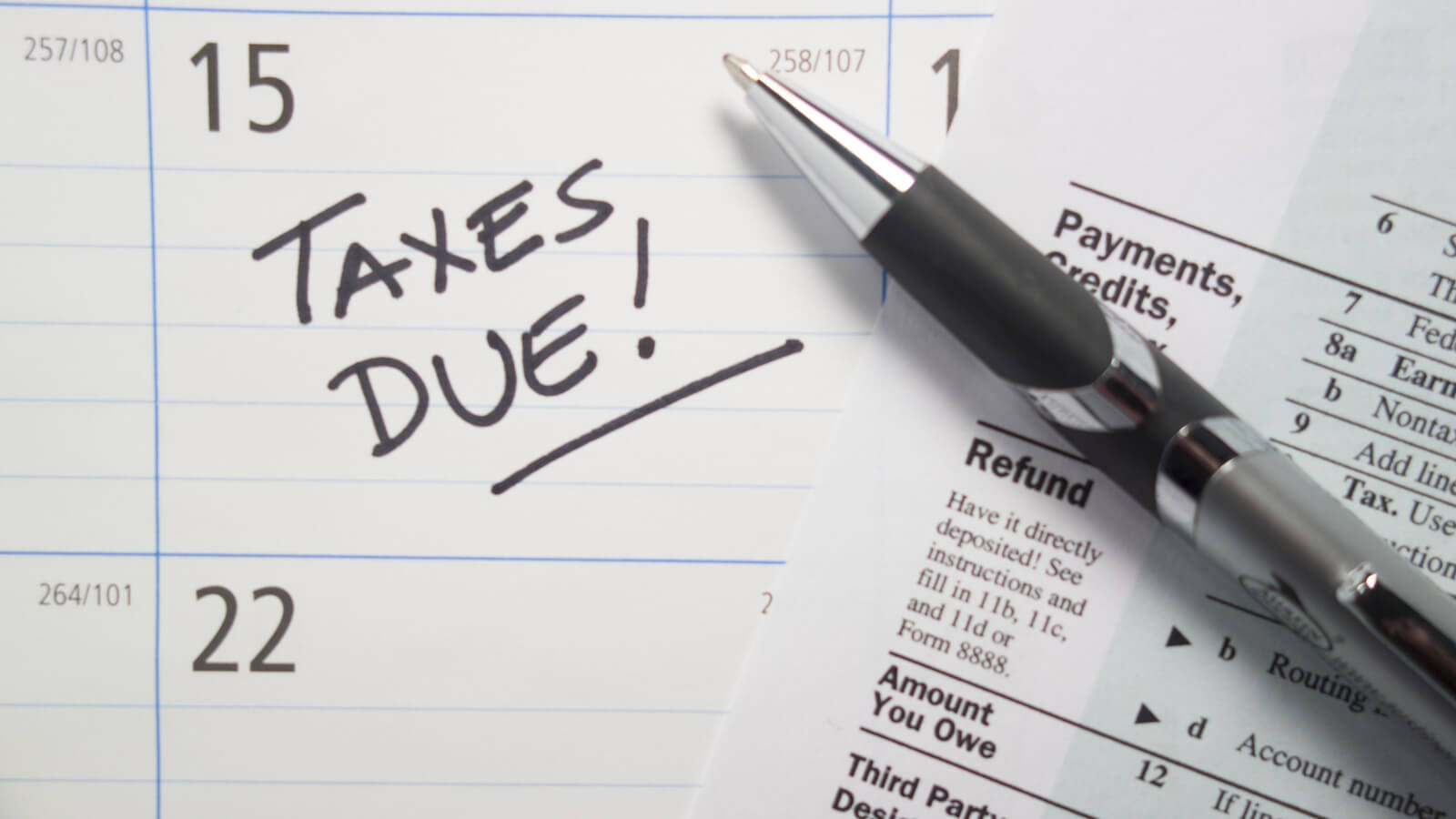Does it even matter?
Weird question, right? Just pay your taxes when it’s time to pay taxes.
Don’t close the article yet! There might be more going on here than you think.
Contents |
| When do I owe taxes? |
| Estimated quarterly payments |
| Should I always pay as soon as possible? |
| What if I can’t pay on time? |
Quick look
- Technically, you owe taxes as soon as you make any money
- Most people just pay taxes once a year, since W-2s automatically deduct taxes
- Business owners (and everyone else) expecting to owe more than $1000 in taxes should be making quarterly tax payments
- However, there are situations in which waiting to pay can be advantageous
When do I owe taxes?
Technically, you owe taxes as soon as you earn any income. That’s why most workers earning a W-2 wage (which includes 92% of all taxpayers) have income taxes automatically deducted from their wages. Pragmatically, however, the IRS doesn’t go after everyone for their tax bill every single time they earn money. Instead, it’s done all at once on a specific day.
Tax Day
April 15th (or sometimes 17th or 18th, depending on the year) is well known to Americans as Tax Day, the deadline by which we all have to have our personal tax returns submitted. These tax returns are for the previous year, meaning that we’re given three and a half months to handle each year’s taxes.
Extensions are easily available. All you have to do is ask for one (via a certain IRS form) and you’ll almost always have the request granted. However, it’s important to keep in mind that this only extends the deadline for filing your tax returns, not paying your tax bill. If you delay your payments by too much, you’ll start accumulating interest and penalties.
Estimated quarterly payments
Business owners don’t have their income withheld like W-2 employees, but it’s still not practical for them to pay off the individual tax liability of every single transaction. So instead, they make quarterly estimated tax payments. That works exactly how it sounds: they estimate what their tax liability for the quarter will be, and they pay that amount.
If you’re a small business owner, and your tax liability for the year is likely to exceed $1,000, you should probably be paying quarterly estimates. But how do you estimate your taxes?
We recommend working with a professional, but your tax liability from the previous year is likely a good starting point unless your business has undergone major changes since then. And if your tax liability last year was zero, and this year looks like more of the same, you probably don’t have to worry about it at all.
Should I always pay as soon as possible?
Technically
Yes, you are supposed to pay your taxes on time. Shocking, we know.
For most people, just paying your taxes as soon as you can is going to be the correct move.
However
In some instances, it can be advantageous to delay making your tax payments.
- If you can make more by investing in your business than the IRS will charge you in interest and penalties: The IRS charges interest on late payments, which essentially means that they’re lending you the money. Like any loan, if you can achieve more with that money than the lender will charge you to use it, it’s a smart move. But this is pretty advanced stuff, so be sure to talk to a professional first.
- If you have a slow quarter coming up: Many businesses have busy and slow seasons throughout the year. If you’ve got a slow season coming up, holding off on paying your taxes could make financial sense. A strong quarter and a slow quarter might cancel each other out, leaving you with a lower tax liability.
What if I can’t pay on time?
If you don’t pay your taxes, that’s obviously not good. If you just can’t pay – as opposed to intentionally dodging taxes – it's not quite as dire, but it’s still a situation you want to avoid. Late payment means owing penalties and interest, and if the situation goes on long enough, the IRS might freeze your accounts or place liens on your assets. That’s not something you want to happen.
Payment plans
Setting up a payment plan with the IRS is usually the best option here. This option will let you pay over time instead of all at once, with minimal fees or penalties. You’ll still have to pay any interest that accumulates while your tax bill is late, but you’ll avoid some of the more serious consequences.
Other options
Payment plans aren’t the only choice in this situation. Other options include:
- File a request for a payment extension due to hardship: This option is only available if you can prove that paying your taxes would be a significant hardship. They’re hard to get approved for, but if you’re going for it, make sure you apply by the usual tax deadline.
- Request “Currently Not Collectible” status: This doesn’t make the debt go away, and you’ll still accrue penalties and interest, but at least the IRS won’t be actively coming after you.
- Apply for an Offer in Compromise: This option lets you pay off your debt for less than the total amount. There are some strings attached, and the fact that you've done this becomes public knowledge, so consider this a last resort.
All in all, these are usually worse options than a payment plan and we don’t recommend them.
Bottom line
You owe taxes the moment you make any money. But that’s not a practical way to deal with taxes, so when should you pay?
Usually, you should pay your taxes on time. For individuals, that means Tax Day (April 15th, occasionally April 17th or 18th). For businesses, that means estimated payments every quarter.
There are situations in which delaying tax payments can be a viable strategy, but that’s tricky stuff and we don’t recommend it unless you really, really know what you’re doing.
And if you’re asking because you’re a little dry at the moment and you need extra time to cover your tax bill, no worries. The IRS has several options – payment plans being the most useful – that can help you avoid any major difficulties.
If you want an even clearer picture of what to do about paying your taxes, talk to the experts on our team at DiMercurio Advisors. We know how to help you meet IRS requirements while maintaining every advantage you can for your business. Schedule a call!








